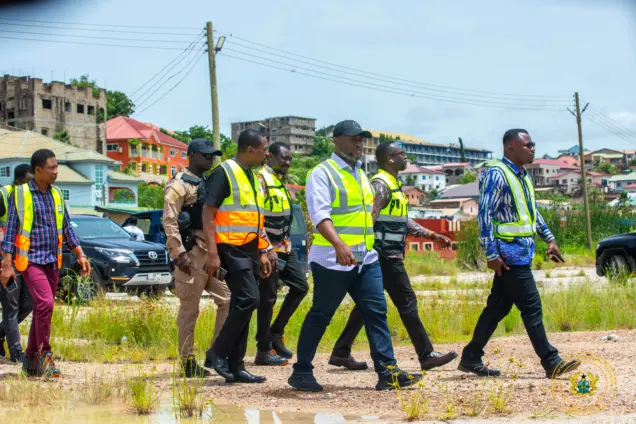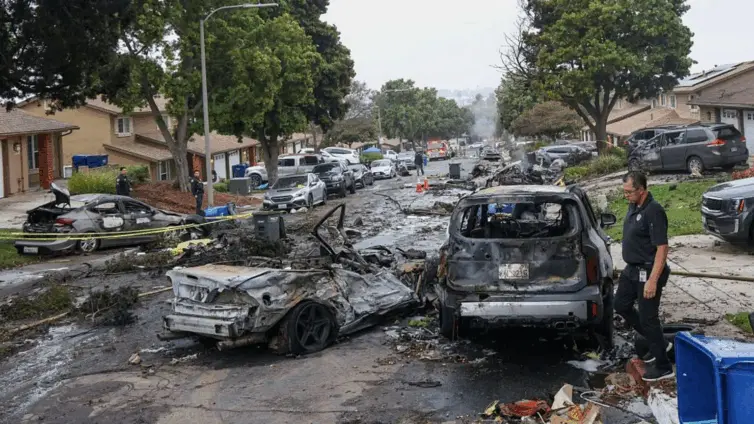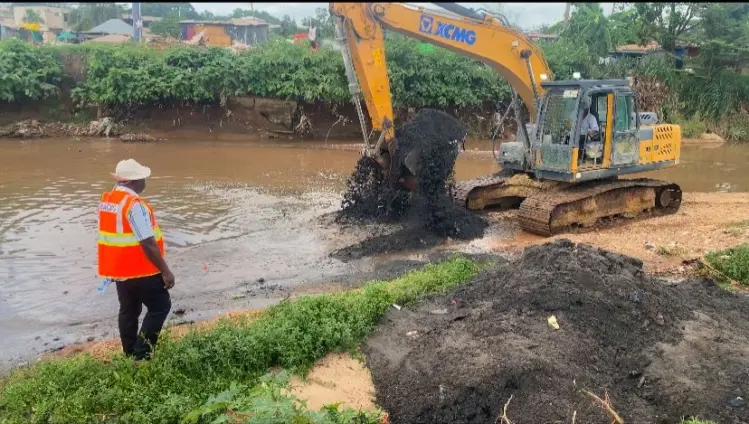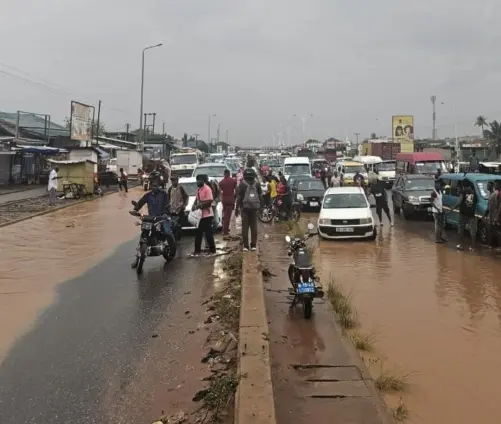Accra, a bustling metropolis, grapples with recurring floods that disrupt lives and livelihoods. Following a recent torrential downpour, Minister for Works, Housing and Water Resources, Kenneth Gilbert Adjei, led a delegation to assess the damage. His subsequent observations underscore a critical need for a comprehensive, multi-sector flood solutions. This isn’t merely about infrastructure; it’s about collaborative strategies that weave together governmental bodies and community involvement to mitigate the devastating impact of flooding. Adjei’s insights mark a shift towards unified efforts, emphasizing that lasting solutions require more than the efforts of a single ministry. The insights are particularly relevant for urban planners, policymakers, and residents of flood-prone areas who seek to understand the complexities of integrated flood management.
The minister envisions a future where various ministries and a dedicated task force work in concert to protect communities and infrastructure, aiming to provide a clear understanding of the integrated strategy designed to protect livelihoods and infrastructure. But achieving this vision demands a fundamental shift in how the city approaches its vulnerabilities.
Addressing the issue requires a multi-sectoral approach to flood management. Minister Adjei stresses that tackling flooding demands collaboration among multiple ministries and local authorities, not just one entity. The Ministry of Roads and Highways, Local Government, and Metropolitan, Municipal, and District Assemblies (MMDAs) all have crucial roles to play.
Individual efforts by the Ministry of Works, Housing and Water Resources alone are insufficient to stem the tide. The interconnected nature of urban development means that failures in one sector can easily amplify the risks in another.
MMDAs play a vital role in enforcing development controls to prevent building on waterways, while road projects need well-maintained drainage systems. According to Adjei, “For instance, while the Ministry may construct major drains, if MMDAs do not enforce development controls or prevent building on waterways, our efforts will yield limited results. Similarly, if road projects do not include well-maintained drainage systems, we will continue to face recurring flooding events.”
To facilitate this collaboration, the President has directed the establishment of a dedicated task force comprising relevant agencies and stakeholders. This group will be responsible for creating and implementing an integrated strategy for flood management, harmonizing the work of various institutions and ensuring continuous monitoring, enforcement, and public education.
The task force will harmonize the efforts of different institutions, ensuring that all stakeholders are working towards the same goals. Continuous monitoring will enable the quick identification and resolution of potential problems. Enforcement of regulations will deter harmful practices, and public education on responsible waste disposal and construction practices will foster a sense of shared responsibility.
Moreover, Minister Adjei highlights the detrimental impact of waste disposal and building on waterways. These practices undermine government investments in flood control, with individual behavior significantly contributing to the problem. Dumping waste in gutters and drains blocks waterways, while building on waterways obstructs natural drainage.
“No matter how much infrastructure is built, if we do not collectively change our habits, we will continue to suffer the consequences,” Adjei warns, emphasizing that even the most robust engineering solutions can be rendered ineffective by irresponsible behavior. Individual actions have a profound effect on the effectiveness of flood control efforts.
Kenneth Gilbert Adjei’s call for a multi-sector flood solutions underscores the complexity of tackling perennial flooding. The establishment of a dedicated task force and the emphasis on responsible waste management and construction practices signal a comprehensive strategy. However, the success of these initiatives hinges on collective action and behavioral changes within the community. By addressing these challenges head-on, Accra can mitigate the devastating impact of floods and build a more resilient future. The multi-sector flood solutions will safeguard communities and infrastructure.
Image Source: MYJOYONLINE






















